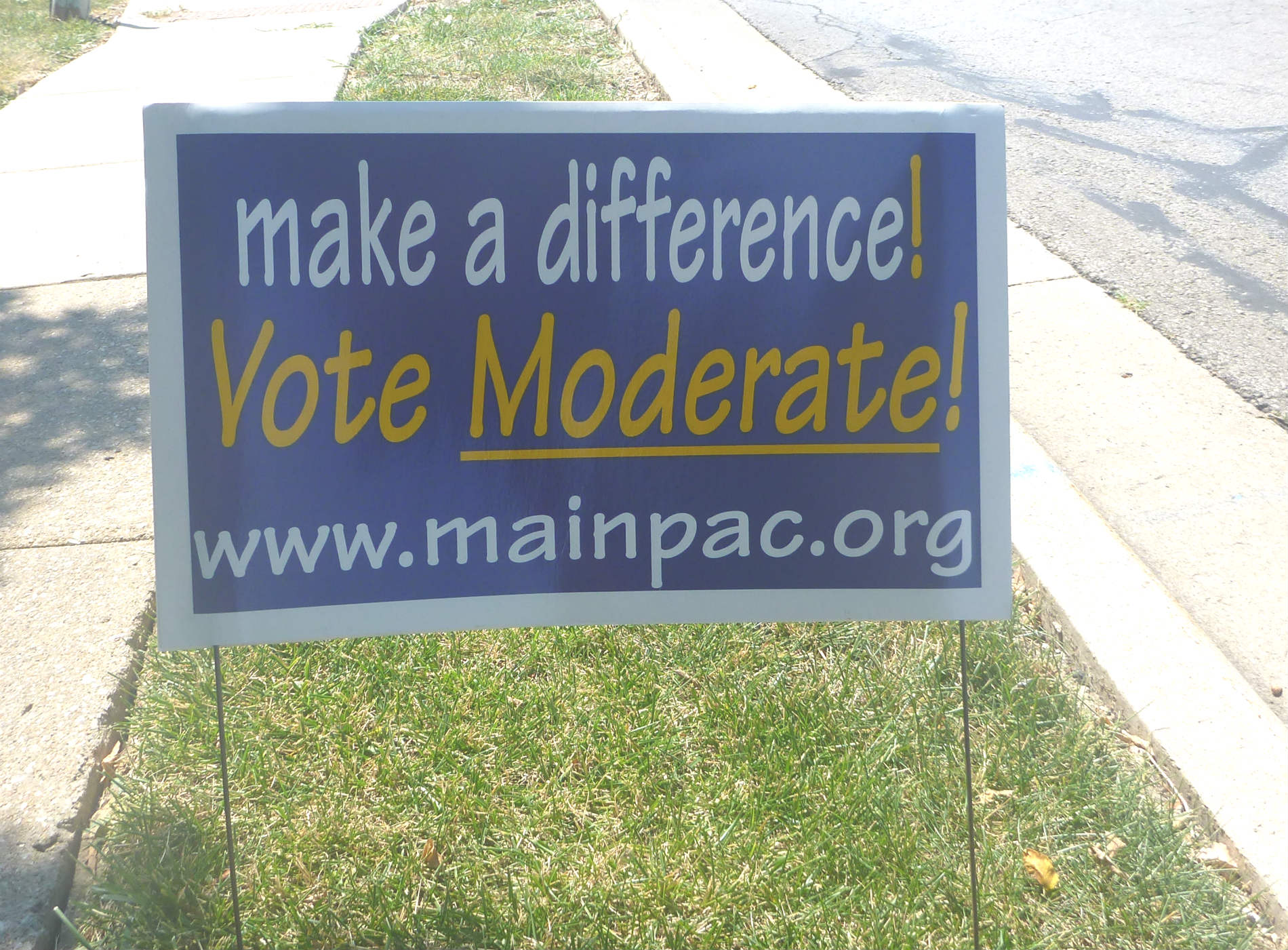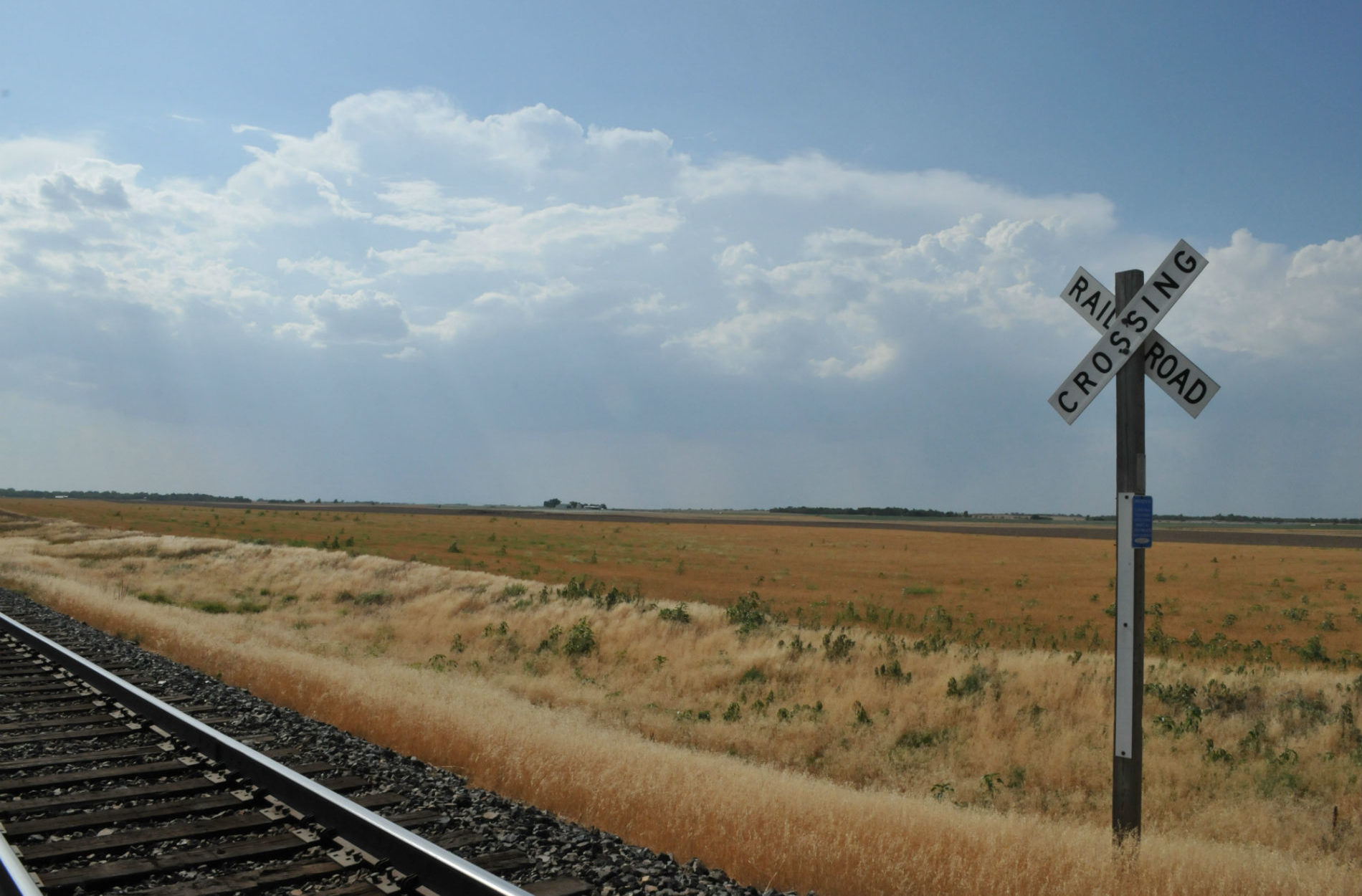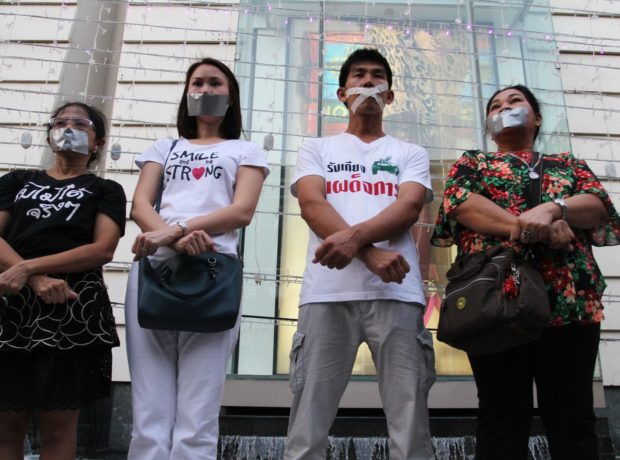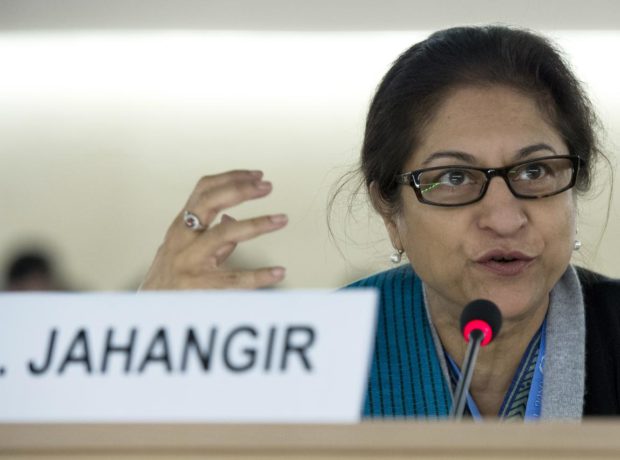Alexander Smith has been carrying out research in the USA on the challenges facing activists seeking to mobilise moderates in the face of religious extremism and militancy in grass-roots Republican Party politics. But what does moderation mean? To find out, Smith went to Kansas, a Republican Party stronghold that has become a primary battleground in America’s so-called ‘culture wars’ in the last two decades.
On a hot July day in 2006, I sat in the comfortable, air-conditioned boardroom of the national headquarters of the centrist Republican Main Street Partnership (RMSP), off K Street in Washington DC. I had come to the US capital to conduct pilot research on an ethnographic study I was planning on the Republican Party’s marginalised ‘moderate’ wing. My meeting with Main Street’s Policy Director was nearing its conclusion. ‘If I was to go to a state where I could observe a struggle between conservative and moderate Republicans taking place on the ground,’ I asked, ‘where would you suggest I go?’
In a heartbeat, he replied, ‘Kansas.’
Imagining myself standing before an endless prairie dotted with lonely farmhouses and rusting windmills, I hardly greeted the prospect of Kansas – which I had never visited before – with enthusiasm. Sensing my disappointment, though, the Main Street Republican was insistent. ‘No, really, you MUST go to Kansas,’ he said. ‘First, read Thomas Frank’s book, “What’s the matter with Kansas?” Then go.’
I finally visited Kansas City in February 2008 as I was scouting potential field sites for my study in the American Midwest. When I did, I understood immediately the wisdom of the advice I had been given. Kansas is – for reasons that will likely strike some as counter-intuitive – the field site par excellence in which to conduct an ethnographic study of moderation and moderate politics. And like Kansas, moderation appears to struggle to capture or excite the contemporary political or sociological imagination. Both are, as Americans might say, ‘Flyover Country’.
Social scientists and the media are drawn to, and fascinated by, militant politics when protest, contestation, argument and action is at its most acute. As a result, scholars too often define moderation as a default position characterised by the absence of strong ideological or other convictions, an elusive midpoint. This is a mistake. After all, perhaps in part because it appears today to be in such short supply – certainly in national and, increasingly, state Republican politics as well – moderation continues to exercise a powerful presence in the American political imagination. And as I learned from the moderate activists I eventually came to know in Kansas, this ‘presence’ provides a conceptual resource for reaffirming a democratic tradition defined by a commitment to civil rights, dialogue and civility – essential values for enabling and even empowering protest, by promoting a pluralist vision of democracy that seeks to accommodate the voices of those who disagree and diverge from the standpoint of the politically powerful.
The Presidential nomination of the conservative Arizona Senator Barry Goldwater over the ‘moderate’ Governor of New York Nelson Rockefeller at the 1964 Republican National Convention is often characterised as the moment when the conservative movement and their evangelical Christian allies began their relentless march to ‘capture’ the Republican Party in the late twentieth century. While the explanations for the rise of conservative Republicanism are not my focus here, I am interested in the story of the destruction of the once dominant, but still largely under-studied, moderate wing of the ‘Grand Old Party’ (GOP), at the hands of conservatives, Christian fundamentalists and, most recently, the Tea Party movement. As the historian George Kabaservice explained in his recent book Rule and ruin: the downfall of moderation and the destruction of the Republican Party, from Eisenhower to the Tea Party, the two main political parties throughout American history ‘had been coalitions of interest rather than ideological vehicles’ so that the Republican Party ‘as recently as the 1960s … contained large numbers of moderate and even liberal representatives.’ Arguing that it would be a mistake to assume (as many scholars do) that ‘for historic reasons some members of both parties found themselves ideologically misplaced’, which then led to ‘a more natural political ordering’ being reasserted in the 1960s, he makes a case for seeing moderate Republicanism as an important political tradition in its own right.
Asserting that there remain ‘millions of voters who define themselves as moderate Republicans, and millions more who would vote for moderate Republican candidates if they could find them’, Kabaservice argues that:
‘… [The] complete domination of the conservative infrastructure in party politics, and the absence of moderate efforts to counter grassroots movements like the Tea Party, means that the GOP has for all intents and purposes become a uniformly ideological party unlike any that ever existed in American history. It has also become a party that has cut itself off from its own history, and indeed has become antagonistic to most of its own heritage. This unprecedented transformation … is likely to change our entire political system in ways that ought to concern all Americans.’

Photo by Alexander Smith
The many activists for the moderate wing of the Kansas Republican Party I met during ethnographic fieldwork in 2009-2010 shared Kabaservice’s anxieties. Now seemingly defined by their defeat as they have ‘passed from the political scene’ and ‘faded from public memory’, moderate Republicans are of interest in part as a contemporary exercise in ‘salvage ethnography’. No matter how depleted their ranks, an exploration of the anxieties, practices and values of moderates engaged in grassroots Republican politics today presents us with an important opportunity to capture something before it is lost. The regenerative promise of such a moment is palpable. Something salvaged is something that can be remade, reused and reworked into new possibilities, full of creative promise. By first looking at the struggle between conservative and moderate Republicans in Kansas during the early- to mid-2000s, a struggle that now appears to have been resolved firmly in favour of conservative Christian evangelicals and their Tea Party allies, that salvaging might begin. But that isn’t enough. How do moderate activists speak about moderation now? I interviewed many of these activists and what they had to say about civility, community, consideration and dialogue, which they grounded in a commitment to the idea of democracy as a moral project. This has the potential to infuse and revitalise moderation as a political force worthy of interest.
Moderate Republicans and Kansas
Under the first Presidency of George W. Bush, the Republican Party’s moderate wing underwent a renaissance. It was prompted by the ideological excesses of the Christian Right’s moral agenda and the neo-conservatives’ war on terror. Along with the Republican Main Street Partnership, ‘Log Cabin’ Republicans achieved national newspaper headlines in their efforts to fight those opposed to gay marriage. Republicans for Choice and the WISH List continued to campaign for candidates supporting full reproductive rights for women in contentious GOP primaries. Following her resignation as EPA administrator over Republican opposition to the Kyoto Protocol in the summer of 2001 – just weeks before September 11 – ex-New Jersey Governor Christie Whitman published It’s My Party Too: The Battle for the Heart of the GOP and the Future of America, calling on ‘radical moderates’ to take back the Republican Party and reclaim it for ‘Lincoln’s legacy’.
Moderate Republicans during this time had numerous standard-bearers across the country. Defeated by Bush in the 2000 GOP Presidential primary, Senator John McCain stood apart from the Republican majority on embryonic stem cell research, illegal immigration and the justification of the use of torture in the post-9/11 ‘war on terror’. Delaware Congressman Mike Castle, later defeated by the Tea Party in the bitter 2010 Midterm primary battles that consumed the GOP, and Senator Lincoln Chafee (Rhode Island), the only Republican Senator to vote against the military invasion of Iraq, also provided voices of resistance during the ascendancy of the neoconservatives in national Republican politics. In the Midwest too, there were Congressional representatives like Jim Leach (Iowa), who vetoed the distribution of anti-gay leaflets in his unsuccessful 2006 re-election bid, alienating social conservatives who then refused to back him. There was also the late Kansas-born Pennsylvania Senator Arlen Specter, a leading Main Street Republican who defected to the Democrats in 2009.
These national struggles were mirrored in state legislatures across America. In Kansas, moderate activist groups like the GOP Club – later to become the Kansas Traditional Republican Majority (KTRM) – and the Mainstream Coalition squared up to the conservative Kansas Republican Assembly, Kansans for Life and other similar organisations, including national groups like the Club for Growth and the National Rifle Association. Indeed, ever since the 1991 ‘Summer of Mercy’ in which the pro-life movement mobilised against the late Dr George Tiller and his abortion clinic in Wichita, Kansas had become a key battleground in America’s so-called ‘culture wars’.
The Christian Right and their conservative allies have indeed had to contend with robust opposition from comparatively well-organised moderate-secular activist groups in Kansas. These groups have drawn, in part, on the state’s moderate and progressive Republican traditions that date back to the historical origins of the state. Following an episode of guerrilla warfare between abolitionist militia and pro-slavery ‘Border Ruffians’ known as ‘Bleeding Kansas’, the state entered the Union as a Free State in 1860, identifying strongly with Abraham Lincoln and the Republican Party he founded. In the face of Populism and Temperance, which swept the state and the rest of America in the late nineteenth and early twentieth centuries, Kansas Republicans continued to support leading Progressive politicians, including Governor Alf Landon, who stood (and lost) against Franklin Delano Roosevelt in the 1936 Presidential election. And after the Second World War, Kansas continued to break new ground for progressive politics. A class action filed in 1951 against the School Board District in the state capital Topeka became the landmark 1954 decision Brown v. Board of Education that saw the US Supreme Court outlaw racial segregation in public schools.
The progressive political history of Kansas might be seen as a relic of another America eclipsed by the cultural and ideological struggles of the last few decades. Kansas seems an anachronism, a place where a moderate/progressive Republican politics that died in other parts of the United States long ago somehow survived into the twenty-first century, albeit hanging on by its fingertips. Contrary to contemporary caricatures of Kansas as a breeding ground for rabid conservatism and religious fundamentalism, the state might equally have been conceived, until very recently, as a site of innovation for moderate activist groups seeking to mobilise against the Christian Right.
The progressive political history of Kansas might be seen as a relic of another America eclipsed by the cultural and ideological struggles of the last few decades.
With the vantage of hindsight in 2014, however, it appears that the fortunes of GOP moderates remained tentative. The national moderate counter-offensive of the early-mid 2000s proved short-lived and the defeat and departure of leading moderates from national politics compounded difficulties for grassroots activists in Kansas. From the mid-2000s onwards, the Christian Right and other conservatives regrouped and mounted what would eventually become a successful campaign to defeat moderate GOP incumbents and dominate state politics. In 2010, the deeply conservative former US Senator for Kansas Sam Brownback was elected Governor after sixteen years of moderate tenure through the Republican Bill Graves and then the Democrats Kathleen Sebelius and Mark Parkinson.
Following his election, the last obstacle to Governor Brownback and his supporters remained the moderate Republican leadership in the state senate. All moderate GOP senators were then targeted in their 2012 primary elections by conservative Political Action Committees (PACs) and the Kansas Chamber of Commerce, which was bankrolled by the libertarian, Wichita-based billionaire Koch brothers. That year’s elections proceeded with all the sound and fury of a military mopping up operation. Very few moderates survived.
What moderation means
Many Kansas Republicans acquired their identities as political moderates partly because that was the label with which the Christian Right branded them and their politics during the 1990s. While some wore this label more comfortably than others, the political struggle in which pro-choice, secular Republicans and their fellow travellers found themselves forced many to reflect on their own political ideas and traditions. This led them to re-evaluate and then embrace those values that remained most important to them, as moderates, in opposition to religious conservatives.
In 2009-2010, I interviewed several members of Plymouth Congregational Church in the college town of Lawrence, located in Douglas County, Kansas. Founded in 1854 by abolitionists from New England, it was the first church established in Kansas Territory and played a pivotal role in securing it as a Free State. In 1863, its congregation was targeted during Quantrill’s infamous raid on Lawrence, during which Southern militia killed almost 200 male residents in what is generally regarded as the worst war crime of the American Civil War. Because of this turbulent history, many of its members take Plymouth’s progressive political identity very seriously and are active in either Democratic politics or the moderate wing of the Republican Party. Indeed, the congregation at the time of my fieldwork included several elected officials, such as the then Attorney General for Kansas (a Democrat), the state’s Insurance Commissioner (a Republican) and several current and former local and state representatives.
One leader of the Church, Daniel*, was a retired university administrator from Indiana who had registered as a Republican voter soon after arriving in Kansas several decades ago. ‘I suspect some people would label me a moderate because I can speak to people of different political persuasions and have supported people of that same division,’ he told me. ‘But I think what makes up a moderate, certainly the commitment to civility and the ability to see good in people of opposite persuasion. But I think it’s again going back to early childhood and a belief that people have, that life is sacred, people have rights and the biggest job of government is protecting those rights. And whether that’s because of racial discrimination, economic hardship or what have you, those rights need to be protected.’
For Daniel, who rejected forms of political partisanship he viewed as divisive, the value of community was vital. ‘Even though somebody may be a hundred and eighty degrees from me on an issue,’ he went on to say, ‘that person has a right to be heard. It would be nice to get back to the point where we could really have in depth debate in a civil mode in our society.’
A retired pastor from western Kansas, Patrick, who had worked in a number of Midwestern States, joked, ‘notice where we sit in the church – extreme middle – [although] a little bit more to the right because I’m fiscally conservative’. He shared Daniel’s concerns about the dangers of partisanship and the decline of civility in public discourse. ‘One word that has become more and more important to me, and my wife hears me complaining about it too much, is people lack consideration of other viewpoints and other people’s opinions,’ he said. ‘And if we listen, we will learn and we will find a way we can go forward together and that word “consideration” – well, because we no longer have a bipartisan Congress, this can only be achieved by living as a moderate in the middle. I mean, I know there is always going to be extremists, but the biggest majority of people ought to live so that they can talk to each other and understand each other and compromise and do the very best they can at that time – at that point in time – knowing that you correct it as you go along.’
Endorsing moderation as a ‘lived’ social practice, Patrick embraced fallibility as a sound principle on which to make decisions on behalf of a community. But this was dependent on members of that community being fully engaged in conversation as those decisions are made. Dialogue is constitutive of community life, was his view. The tradition of moderation – of consideration, of collective decision-making and dialogue – was integral to his upbringing. ‘The moderator of a church would have a presence,’ he told me. ‘He would be sure that every side got heard without interruption and he would keep the peace of the church at all cost, so that people would not get up out of a meeting and take their marbles and go home. And that’s a virtue of moderation – right there – to keep people together and moving forward towards a hopeful goal or goals. I voted for Obama because he brought the word “hope” back alive among our people. I was sick to death – and I spoke about it in my Christmas letter that we send out every Christmas – we have got to stop living by fear. It will destroy us if we do not get hope again. We’ve got to be hopeful, got to work together, in the middle, you know, and so it’s a passionate belief of mine.’
A senior pastor at the Church, Paul, also embraced moderation as necessary in his role, even if he and his wife defined their politics more radically. It was core to the identity of the church, notwithstanding its strong historical credentials as an activist, on occasion even militant, church on progressive causes. ‘Moderate? You know, I think it’s really tough for me because I’m married to somebody who’s not a moderate, doesn’t see herself as a moderate and so we have this argument all the time and I think I have a hard time sometimes figuring out, who am I as a pastor of a moderate congregation? I realise that the credibility I have to be a leader of this congregation comes from the people of this congregation and that if I did not embrace moderation – if I embraced a more radical perspective – I would not have the support for my leadership.’
For Paul, moderation demanded a disciplined engagement with a congregation defined by social and other relations that, to him, seemed fragile. Attending to these relations was hard work. ‘I think a place like Plymouth is a huge challenge,’ he said. ‘In a moderate-to-liberal congregation, the personality of a leader and the relationships you have with the people in the community tend to be that which kind of holds the centre together and I think that in places like Plymouth, it’s – I think they’re fragile institutions. I think they’re very fragile and it would not take much for this congregation to kind of fracture.’
The suggestion that moderation was the stitching that kept things together was strong. It was shared by Dennis, a former Chairman of the Douglas County Republican Party during the early 2000s, to whom I spoke. In 1964, he and his wife had been enthusiastic Young Republican activists for Nelson Rockefeller in his failed bid to secure the GOP Presidential nomination. He explained to me that moderates had an attitude to the role of government that was different from conservatives. ‘I think moderates have long felt that governance is in the middle,’ he told me. ‘You don’t call it “moderatism” or anything else. It’s the function of government to achieve something by compromise and a decent discourse. Now, that means moderate to me today, I guess. But that’s not really what the label, why the label was never acquired by moderates and used by moderates. It became through default that “I’m a Moderate because I’m not a Conservative”. But what it is – “I believe in government”, “in moderation in the middle, with compromise involved” – will achieve good governance and this extremism stuff doesn’t on either side.’
Harry, a radio broadcaster and an employee of the Lawrence Chamber of Commerce, talked of his father, who had been a conservative Republican who had served in the state legislature post-WWII but who taught him the importance of moderation in the legislative process. ‘To moderate, to be a conciliator, to say “I know you don’t agree with a thing this guy says, but we’ve got to have his vote”,’ was to be valued positively. He felt that his strong belief in the constitutional separation of church and state now put him at odds with the views of many contemporary GOP conservatives. With some initial reluctance, he had come to think of himself as a moderate. ‘I would have to say that a series of things that had been going on in our nation led me to realise – well, certainly I am not what you would call part of the Religious Right! I just – I’m – my religious views are mine.’
For Harry, religion belonged firmly in the realm of the private. But government had a positive role to play, safeguarding rights and services and attending to the needs of vulnerable groups. He said, ‘I feel very strongly in our public school system. I’m an advocate for public schools; that crosses me off a lot of the conservative Republicans of today’s list. They don’t think that that’s the way to go. I feel very strongly about healthcare being available, especially for those who are old and especially for those who are young; so that takes me off the right wing. I have a strong feeling that we need to take care of people that can’t take care of themselves. If we have to raise our taxes, we have to raise our taxes. So maybe I’m kind of getting to – and see, now I’m sounding like a Democrat!’
‘Does being a moderate mean you change your political point of view?’ he went on to ask. And answering his own question, ‘Absolutely not! It means you’re willing to listen to the other person and accept some changes in legislation that will help you accomplish what you think is most important from your political point of view. Does that make you a ‘waffler’ and less strong? I don’t think so. I think it makes you a realist.’
There was strong affirmation here of a role for government and a method of governing that placed a positive emphasis on engagement, dialogue and compromise. It was a common position amongst many moderates I got to know, including those who did not belong to Plymouth Congregational Church.
John was a lawyer and self-described ‘moderate’ from nearby Johnson County, Kansas, who had served for much of the 2000s as a board member of the Mainstream Coalition, a centrist PAC that campaigns for public education and the separation of church and state. A former Republican who now registered as a Democrat voter, for John moderation meant being willing to ‘listen to reasonable ideas’ and embracing the role of pragmatism in government services. ‘Where I part Republican company to the conservative Republicans is that they want to take away services that I do think the government can and should provide. So moderation, I suppose, for me comes down to: if it works, do it and if government can do it and that’s the only way it can get done, do it.’
Being moderate or pragmatic for John meant engaging in dialogue with diverse and opposed viewpoints and accepting the fallibility of one’s decisions. It meant being available and responsive to reason, rather than simply being reasonable in how one presented one’s own arguments.
‘Moderates don’t like this battle between GOP conservatives and moderates for the most part,’ said Allan, a former chairman of the Johnson County Republicans. ‘You know, we don’t like this battle. It’s counter-productive. It’s a waste of time. This battle’s not about policy. It’s about power and, for the most part, moderates are interested in passing public policy, implementing public policy that is good for the state, you know, whatever the good for the state – whatever we think “good for the state” means. I think that what separates centrists, or what separates moderates or whatever you want to call it from the right wing, is the number of “shades of grey” you see in the world, you know, the number of “shades of grey” you see in the issues.’
Moderates value compromise, Allan said, and are prepared to embrace what might be called a ‘politics of sacrifice’ in which citizens agree to ‘get something that they want’ while accepting that ‘nobody gets everything that they want.’ And it’s difficult to participate in such a politics if one is unable to ‘see good in people of opposite persuasion’. Moderation demands that judgment is deferred long enough so that one can listen to opposing or just different points of view.
Democracy begins at home
From all those I spoke to during my time in Kansas, the absolute need for civility, compromise, pragmatism and reason in public discourse was paramount. Motivated, in part, by an underlying, occasionally openly-expressed, optimism about the power of dialogue to forge new relations amongst those who may be politically opposed, these advocates of moderation could generate a sense of common purpose and even community. But such optimism was tempered by an acknowledgement of the fragility of social relations and their limits. How can moderate values operate in a divided politics? This remains the central question that drives many of the moderates I encountered in Kansas.
Almost a century ago, the American philosopher John Dewey drew on the writings of Thomas Jefferson to argue for a commitment to community, grounded in local, associational life, as a building block, a prerequisite for democracy. ‘There is no substitute for the vitality and depth of close and direct intercourse and attachment’, Dewey wrote in The Public and Its Problems. ‘Democracy must begin at home, and its home is the neighborly community.’ For John Dewey, for Thomas Jefferson and for the American moderates I came to know in Kansas, democracy is fundamentally a moral project concerned primarily with the promotion of civil rights and civility. This is important, positively highlighting a conception of democracy composed of plural and discordant voices lending themselves to conversations in which they are called upon not just to reason, but to be available to reason. Protest doesn’t always have to be deaf.
This view of democracy differs from that promoted, say, by the Tea Party, which seeks to assert the rights of a self-proclaimed majority that feels it has made too many political sacrifices to the demands of minorities. The version of democracy that moderates hold dear describes a set of political and social practices along with ideas and normative values that are worth salvaging and reapplying in contemporary American democracy and elsewhere. Moderation is about the relations among publics and the possibilities of a deep pluralism that is respectful of difference. However, publics are under threat by neoliberal markets with the further risk of authoritarian populism to any vacuum left behind. The future of pluralist democracies without revivified social and political practices of moderation may be bleak.
This article is an abridged version of ‘Democracy begins at home: moderation and the promise of salvage ethnography’, which was recently published in Alexander Smith and John Holmwood’s edited volume Sociologies of Moderation: problems of democracy, expertise and the media (2013, Wiley Blackwell)
* The names of the individuals quoted in this article, whom the author interviewed during his fieldwork, have been changed to maintain anonymity and protect their identities.
Photo by Emily Bell



